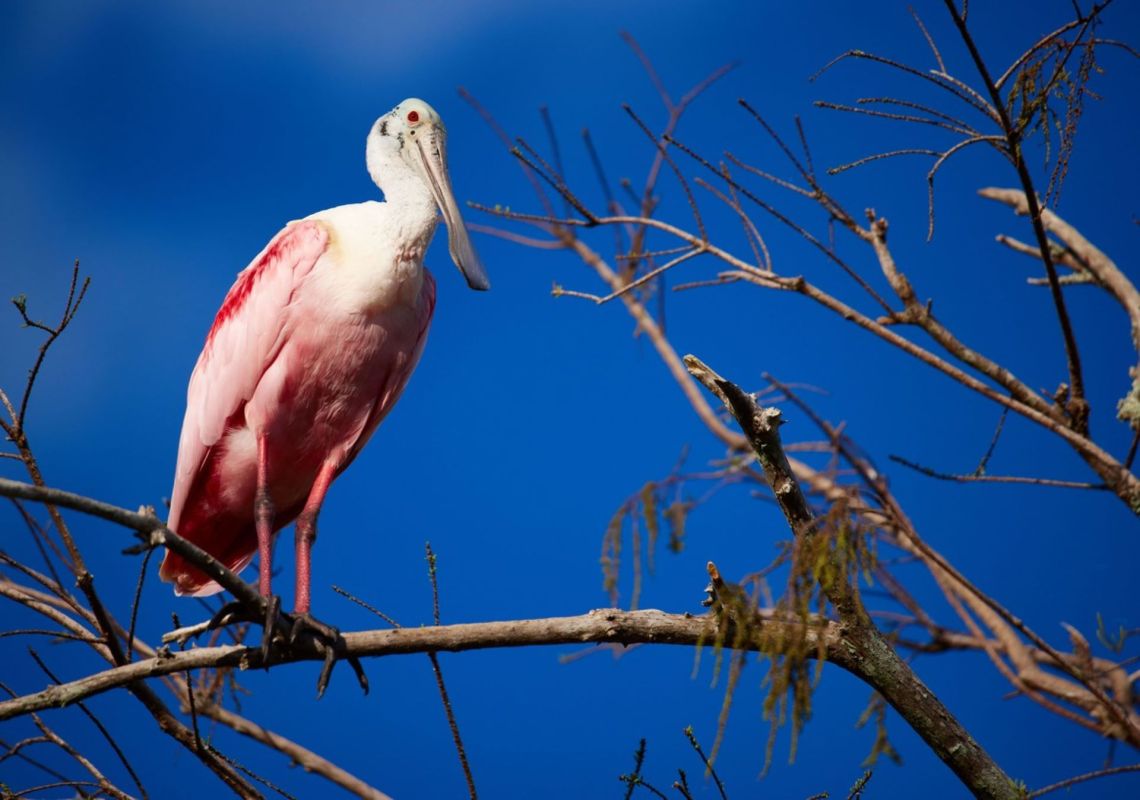Birdwatchers in Wisconsin recently got quite a thrill, as a bird more commonly associated with South America, Central America, and the southern United States arrived in a nature area.
The roseate spoonbill, a pink waterbird with a distinctive spoon-shaped bill, was the first living example of its species ever seen in the state. (A dead roseate spoonbill was found in Wisconsin 178 years ago in 1845.)
People traveled from far and wide to see the rare and beautiful bird, which was identified as being a juvenile because of its pale pink color (adults are a brighter pink) and fully feathered head. Some heralded the bird's arrival as a success for the Ken Euers Nature Area.
"I knew I just had to see it," one 15-year-old birdwatcher told WISN-TV. "The restoration efforts of the Fox River and Lake Michigan must be paying off. Not so long ago, pelicans didn't even come as far as Green Bay. This must mean the fish are finally safe enough for them to consume."
Although the Ken Euers Nature Area is undoubtedly a wonderful place for birds and getting a chance to see a rare species in the wild is always exciting, the arrival of this roseate spoonbill so far north is sadly not a great sign for the overall health and survival of the species.
The American Birding Association spoke to biologist Kevin Welsh with the Audubon Everglades Science Center in Florida who studies spoonbills. Welsh told them that the birds are moving further north than ever before "mostly due to rising water levels here in the southern peninsula in Florida. They're losing ideal foraging habitat for them to be able to get the young birds to reach fledgling age."
He went on to cite statistics regarding chicks per spoonbill nest, saying: "We're seeing a lot of nest failures. It's about 37% successful, and that means at least one chick per nest. That's pretty low. That's not good."
All types of animals are changing their migratory patterns because of our planet's changing climates, largely the result of centuries of burning dirty energy sources, like coal and oil. The roseate spoonbill sighting calls to mind recent sightings of a rare South American bird in New York state and many other similar such incidents.
Join our free newsletter for cool news and cool tips that make it easy to help yourself while helping the planet.









